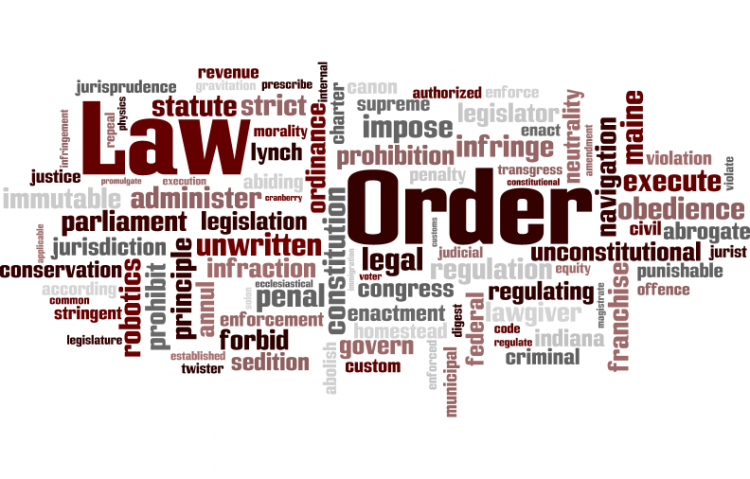
- Target:
- Concerned Citizens and Police Officers
- Region:
- United States of America
POLICING OUR NATION
Qualities of Police in a Free and Democratic Society
Everyone knows that policing a democracy is a difficult business. It is mainly so because the government assures its citizens certain rights that limit, and even challenge, the power of the state. This is especially evident in assuring those who live in a free society the right to protest, to be secure in their persons and homes, and the right of due process.
In establishing our nation’s Constitution, the founders wrote they were doing so “to form a more perfect union, establish justice, insure domestic tranquility, provide for the common defense, promote the general welfare, and secure the blessings of liberty.”
Although set forth nearly four score years before the establishment of the first American police agency, these aims could well be understood as the foundational statements of our system of policing. To a large extent, the American police institution exists to advance these goals and help society honor its social contract. Therefore, the quality of a democracy is heavily dependent upon the quality of its police.
While our country’s police are presently challenged on one hand by increasing demands upon them to address such issues as terrorism and illegal immigration, and on the other by declining fiscal resources, the relatively low crime rates allow some greater space for public discourse about the police role in society.
Equally compelling is the need to reconcile core principles of democratic policing with the fast-evolving nature of information, forensic, and surveillance technology. Out of concern that some of our nation’s police are undergoing a slow and persistent erosion of trust, fairness and accountability, we believe it is time to state clearly what it is police should do and be in our society.
We believe the following qualities are essential for our nation's police to practice in order to be full partners in our free and democratic society:
Qualities of Police in a Free and Democratic Society
1. Accountable
Police recognize the nature and extent of their discretionary authority and must always be accountable to the people, their elected representatives, and the law for their actions, and be as transparent as possible in their decision-making.
2. Collaborative
Police must be able to collaborate, as appropriate, with community members and other organizations in settling disagreements, choosing policing strategies, and solving policing problems. This collaborative style must also apply to the way police departments are led and managed. This means police leaders must actively listen to their officers and work with them in identifying and resolving department and community problems.
3. Educated and trained
All police officers with arrest powers should begin their career with a broad and advanced education in the sciences and humanities. Training should consist of rigorous and extensive training courses in an adult-learning climate that teaches both the ethics and skills of democratic policing.
4. Effective and preventive
The mark of a good police department and the officers who work within it is that they continuously seek to handle their business more effectively and fairly, emphasizing preventing crime and disorder and not merely responding to it, and applying research and practical knowledge, using problem-solving methods, toward that end.
5. Honest
Honesty and good ethical practice are essential. The search for and cultivation of these traits begin with the selection process and continue throughout an officer’s career. Only those police candidates who have demonstrated good decision-making so far in their lives should be selected.
6. Model citizen
Police officers must not only be good police officers, but good citizens as well, modeling the values and virtues of good citizenship in their professional and personal lives.
7. Peacekeeper and protector
The police role is, above all else, that of community peacekeepers, and not merely law enforcers or crime fighters. Their training, work, and values all point towards the keeping of peace in the community. As gatekeepers to the criminal justice system, police must see themselves as defenders and protectors of Constitutional and human rights, especially for those who cannot defend or care for themselves in our society.
8. Representative
The members of police organizations must be demographically representative of the communities they serve, both because it reflects fair employment opportunities and because it enables the police to be more effective in achieving their objectives.
9. Respectful
Police officers should treat all persons with unconditional courtesy and respect, and be willing to listen to others, especially to those without social power or status. Likewise, police leaders should treat their workers with courtesy and respect their employment rights.
10. Restrained
The preservation of life should be the foundation for all police use of force. Police officers should continually prepare themselves to use physical force in a restrained and proper manner, with special training in its application to those who are mentally ill. Deadly force should be used only as a last resort and only when death or serious injury of the officer or another person is imminent. Less-than-lethal force should be preferred where possible.
11. Servant leader
Every police officer, regardless of rank, must simultaneously be a good leader and a good servant, to the public and to the police organization. Servant leaders use their authority and influence to improve others’ welfare.
12. Unbiased
Although some bias is inherent in human nature, police officers recognize that they can and should train themselves to reduce their biases and deal with all people fairly and without regard to their race, ethnicity, gender, socio-economic condition, national origin, citizenship status, or sexual orientation.
You can further help this campaign by sponsoring it
The ON THIS WE STAND: Policing Our Nation petition to Concerned Citizens and Police Officers was written by David C. Couper and Michael S. Scott and is in the category Law & Order at GoPetition.